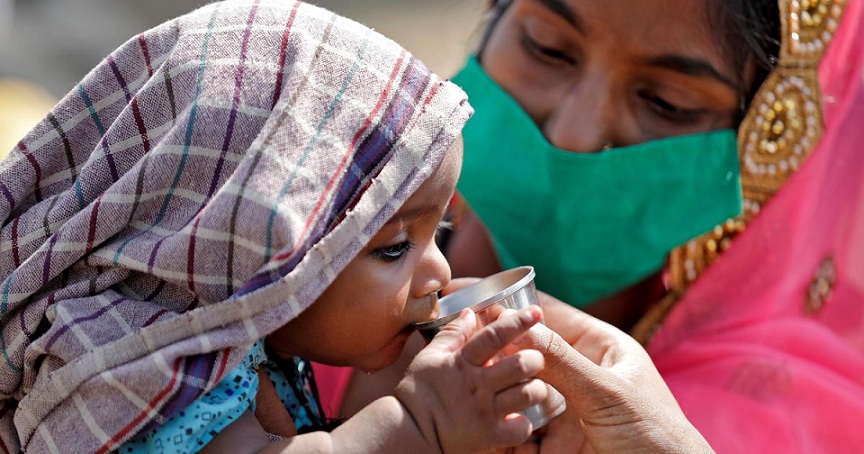
Mohammad Irshad was a four-year-old boy but the eldest son of Alam, a tailor who worked at Rohini Area in Delhi. Being the sole earner of the family, he was making the ends meet throughout the lockdown with his savings, but when the lockdown was announced the third time he decided to return to his hometown in Bihar.
With a family of sixteen members, he boarded the train to his village, but little did he know that it would be a train of calamity for him. PintuAlam, father of deceased child Irshad, told the Telegraph, “My son was crying due to hunger and was asking for food. But there was nothing we could provide. We had some money but no shop was open at railway stations along the route,”
Alam further said, “We were asked by the Delhi government to come near AnandVihar terminal on Friday (May 22) for a medical check-up. We went there. The arrangements were good.”
“We were given food and a place to sleep. Paper work was done and the medical examination was completed on Saturday morning. We were given the go-ahead to board the train.”
The train left at 2pm on Saturday.
“Poori-sabzi was served in packets around 9pm at Lucknow. But our group with 16 members was given just five packets, and each packet had just two pooris,” Alam said. The group of 16 shared the 10 pooris. They had brought along two Amul milk tetra-packs, which the children had.
The train should have reached Patna on Sunday morning, covering a distance of 1,000km, but it stopped every now and then. No food was served after that.
He further added, “All the passengers were hungry and frustrated by Sunday afternoon and demonstrated at a small station where the train had stopped, but no relief came.”
The train crawled through the day on Sunday, the heat becoming unbearable whenever it stopped as the temperature hovered around 40 degrees, Alam said. “Finally the train reached Patna on Monday around 5am…. My son was crying for food, but no food was given at Patna junction,” Alam said.
At Patna, the passengers were asked to catch buses waiting outside and go to Danapur to catch another train to Muzaffarpur. But buses were few, and people were jostling.
“A small pick-up truck was available for hire and we took it to Danapur. No food arrangements were made at Danapur, too. We boarded a train that was to go to Muzaffarpur. It took one-and-a-half hours and we reached around 10am. All the while the kids were crying for food,” Alam said.
At Muzaffarpur station, the group had no idea when a bus would leave for West Champaran, and kept running in and out to find out. “We suddenly noticed that Irshad was not moving. We checked, and found that he was no more. We cried and screamed. I guess he died of hunger and heat.”
Then, an additional district magistrate arrived and arranged an ambulance that took them to their village TularamGhat, Alam said.